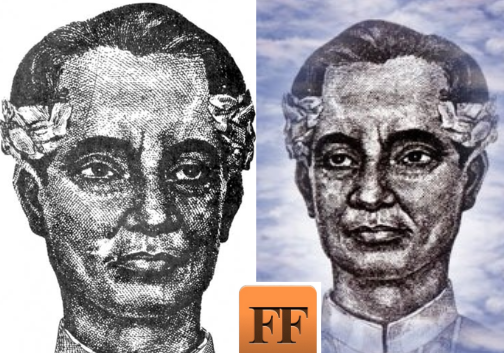
Biography Table
| Attribute | Details |
|---|---|
| Full Name | Francisco Balagtas y de la Cruz |
| Also Known As | Francisco Baltazar |
| Date of Birth | April 2, 1788 |
| Place of Birth | Panginay, Bigaa, Bulacan (now Balagtas, Bulacan), Philippines |
| Date of Death | February 20, 1862 |
| Nationality | Filipino |
| Occupation | Poet, Writer |
| Notable Work | Florante at Laura |
| Spouse | Juana Tiambeng |
| Parents | Juan Balagtas (father), Juana de la Cruz (mother) |
Who Was Francisco Balagtas?
Francisco Balagtas was a Filipino poet and writer who played a significant role in shaping Philippine literature. He is best known for his epic poem Florante at Laura, which is considered one of the greatest literary works in the Tagalog language. His writings, often touching on themes of love, justice, and social issues, inspired future generations of Filipino writers.
Early Life and Education
Born on April 2, 1788, in Panginay, Bigaa, Bulacan (now named Balagtas in his honor), Francisco was the youngest of four siblings. His father, Juan Balagtas, was a blacksmith, while his mother, Juana de la Cruz, was a homemaker. Despite their modest means, his parents valued education, and young Francisco showed an early interest in learning.
To pursue formal education, he first attended a parochial school in Bigaa, where he was introduced to prayers and catechism. Later, he moved to Manila and worked as a servant for the wealthy Trinidad family in Tondo. The family enrolled him at Colegio de San Jose, where he studied Humanities, Theology, and Philosophy.
Journey into Poetry
During his time in Tondo, Francisco met the famous poet Jose de la Cruz, also known as Huseng Sisiw. Balagtas sought his help in refining his poetry, but their friendship ended when Jose refused to assist him because he could not provide a chick (sisiw), which was Jose’s preferred form of payment instead of money. This incident motivated Francisco to further develop his writing skills on his own.
After failing to court a woman he admired in Tondo, he moved to Pandacan, Manila, where he continued writing poetry, songs, and plays.
Personal Life and Legacy
Francisco Balagtas married Juana Tiambeng, with whom he had children. His later years were marked by challenges, including imprisonment due to personal disputes. However, his literary contributions remained influential.
Balagtas passed away on February 20, 1862, but his legacy endures. His masterwork, Florante at Laura, remains a staple in Philippine literature and is studied in schools nationwide.
Conclusion
Francisco Balagtas is regarded as one of the greatest Filipino poets. His works, rich in nationalistic and moral themes, continue to inspire writers and readers alike. His influence on Philippine literature is profound, making him an enduring literary icon





